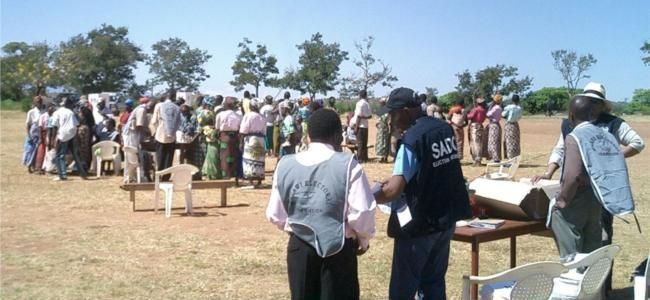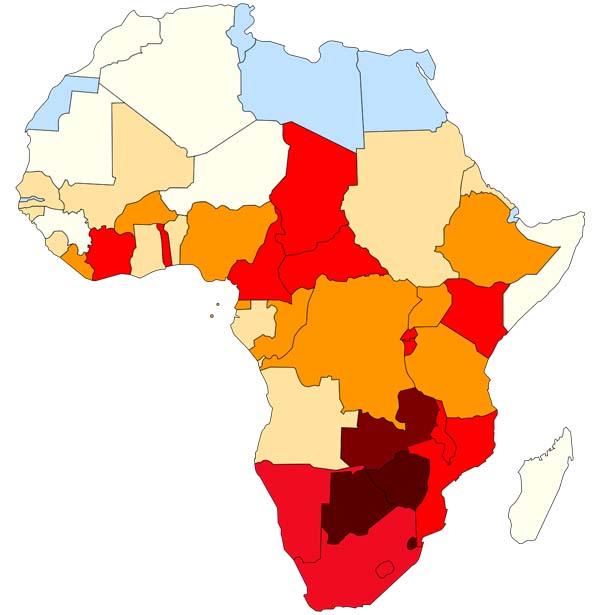Let us start with the time-worn cliché that suggests that in life there are only two things that are certain: death and taxes.
I want to suggest that in Malawi, we do have a few things that are as certain as death and taxes, and that one of them is problematic elections. At the risk of being accused of having pretensions towards being a prophet, I will say that as with 1994, 1999, 2004 and 2009, so too will it be with 2014: the elections will be problematic.
It is probably not even too early to assert that the chances of the much-heralded 2014 tripartite elections meeting the minimum standards for a democratic election are almost zero. I know this sounds pessimistic and negative. The superstitious among us may even consider this to be tempting fate. Allow me, however, to present the evidence on which I base this rather bleak assessment.
At the heart of the near-certainty of a problematic 2014 elections is our failure, over the years, to resolve the many of the structural and political factors that have contributed to making elections problematic in previous years. The reports of various election observer and monitoring missions clearly identify the problematic areas. All one needs to do is reflect on the problems identified in these reports and on the question whether these problems will be resolved in the run-up to the 2014 elections.
For the sake of this discussion, we can limit ourselves to three areas of concern: the lack of openness, fairness and accountability in party primary elections; bias by the Malawi Broadcasting Corporation against “opposition parties” and in favour of “the ruling party”; and the illegal use of state resources to benefit the campaign of the “ruling party.”
I anticipate that we will not see any significant changes in these three areas. This is despite the fact that in previous elections observers and monitors have highlighted the negative impact that the said practices have on the democratic integrity of the electoral process.
We are unlikely to see political party primary elections that are free and fair; ones that give every aspiring member of the party equal opportunities to contest, regardless of gender, region of origin or affiliation to the party leadership. In many cases, I keep hoping that this will not be the case, but what is hope in the face of clear evidence that little effort has been made to improve intra-party democracy since the last elections?
This takes us to the perennial favorite of all media, law and politics students: the Malawi Broadcasting Corporation. Since the Communications Act came into force in 1998, MBC has been under a specific legal obligation to be fair in its election coverage. Section 87(2)(a) and (d) of the Act states unambiguously that the MBC shall, in the provision of its broadcasting services, function “without any political bias and independently of any person or body of persons” and “provide balanced coverage of any elections.”So what are the chances that MBC will abide by this law in the 2014 elections? Let me put it this way: I will be very, very, very surprised if it does.
My skepticism is informed by the corporation’s past conduct, especially its attitude towards the law. This is best appreciated if we remember that a 1999 High Court judgment ordering MBC to provide fair election coverage was treated with contempt by the corporation. Despite the judgment, MBC went on with business as usual, treating itself as little more than a mouthpiece of the “ruling party” of the day. And so it has been since.
As for the use of state resources for the benefit of the partisan campaign of the “ruling party”, I am more than certain that this is unlikely to change significantly before the 2014 elections. The line between state and party interests will continue to be blurred deliberately in the 2014 campaign. Yes, the media and civil society organisations will blow the whistle and raise a hue and cry; observers will make the right noises; and some active citizens may even go to court to complain about the unconstitutionality of this. Will we, therefore, see the ruling party build a firewall between its resources and those of the state? Do not hold your breath waiting for this eventuality.
Now you can see the evidence that gives me the audacity to amend the ageless quotation on death and taxes. So, while Benjamin Franklin said “in this world nothing can be said to be certain, except death and taxes,” I would have said “death, taxes and unlevel playing fields in Malawian elections.” – By Edge Kanyongolo (The Nation)




